Giving Jaggery (Gur) to Babies – When, Benefits and Risks

Jaggery, known as ‘gur’ in Hindi, holds a significant place in traditional South Asian cuisine. It’s not just a sweetener but also a cultural emblem. The process of making jaggery involves boiling sugarcane juice or date palm sap into a concentrated syrup, which upon cooling solidifies into blocks. Beyond its culinary uses, jaggery serves as a natural sweetener in various Ayurvedic medicines. However, introducing jaggery into a baby’s diet requires careful consideration due to its potential impact on their health. This article delves into the intricacies of incorporating jaggery for babies, and the benefits and risks of feeding your baby jaggery.
Can You Add Jaggery to Baby Food?
You must be wondering if jaggery is good for babies or not. The answer is yes, but it must be used with caution. In rural India, doctors may recommend the inclusion of jaggery in moderate quantities in the food for babies who are less than a year old. Jaggery is a good source of iron, hence it may help a baby fight anaemia. However, you must check with your baby’s doctor before including jaggery or gur in your baby’s diet. Including jaggery in your baby’s diet will also depend on feeding methods and your lifestyle
When Can You Introduce Jaggery to a Baby?
Jaggery should be introduced to a baby’s diet only after the age of one year. However, this may vary based on the baby’s health and your doctor’s advice. Paediatricians recommend that babies should not be given any form of sugar until they turn one.
Amazing Health Benefits of Jaggery for Infants
Is jaggery good for babies? The answer is yes. There are many jaggery benefits for babies – however, it is not recommended for babies less than a year old. Babies older than one year can be given jaggery. The health benefits of jaggery are:
1. Prevents Anaemia
Jaggery is a good source of iron. 10g of jaggery contains 0.3mg of iron, which is 3% of the daily recommended dietary allowance (RDA). According to the Indian Journal of Pediatrics, including jaggery in your baby’s diet can prevent anaemia, which is caused due to iron deficiency in the blood (1).
2. Strengthens the Bones
Jaggery contains phosphorous and calcium, which are minerals essential for the development of strong, healthy bones. Hence, consuming jaggery can help strengthen your baby’s bones.
3. Detoxifies the Liver
Jaggery is an unrefined sugar that can help flush out toxins from the body. It cleanses and detoxifies the liver.
4. Increases Immunity
Jaggery is rich in antioxidants and minerals like calcium, phosphorus, magnesium, selenium, and zinc. It also contains vitamins B4, B5, B6, and choline. All of these together help in increasing your baby’s immunity.
5. Treats Symptoms of Flu, Cough, and Cold
Jaggery has traditionally been used as a home remedy to treat symptoms of cold, cough and flu in India. Warm water mixed with a bit of jaggery is given to babies suffering from cold, cough, or flu. This gives the baby an immediate relief. Jaggery has the ability to cool the body down. Having warm water with jaggery brings down body temperature when your baby has the flu.
6. Prevents Constipation
Jaggery stimulates regular bowel movements, thus preventing constipation. It also aids in digestion by activating digestive enzymes in the stomach and intestine.
7. Provides Instant Energy
As it is 97% sugar and is made of complex carbohydrates, jaggery takes more time to get absorbed by the body. It provides your baby with greater energy for a longer duration (2).
8. Good for Intestinal Health
The magnesium in jaggery promotes good intestinal health and aids digestion. 10g of jaggery contains nearly 4% of the daily RDA of magnesium.
Risks of Giving Jaggery to Babies
Jaggery contains about 97% sugar. Therefore, excessive use can be harmful to your baby. The risks of giving jaggery to babies are:
1. Too Many Calories
Jaggery contains about 38 calories per 10 g. As a result, excessive consumption of jaggery can result in the baby getting too many calories, causing an increased risk of high blood pressure, heart disease and diabetes later in life.
2. Sugar Addiction
This is one of the important side effects of jaggery for babies. Jaggery can cause babies to become addicted to sugary foods later, leading to diabetes.
3. Unfavourable Reactions
Some babies may have unfavourable reactions to jaggery, such as rashes or stomach problems. If the jaggery has not been prepared properly and has impurities, it can increase your risk of getting intestinal parasites and worms.
4. Cavities
Excessive consumption of jaggery can cause cavities in your baby’s teeth.
5. Obesity and Diabetes
Too much jaggery can cause obesity and diabetes in babies when they grow up.
Ways to Include Jaggery in Your Baby and Toddler’s Diet
Jaggery, a traditional sweetener in many South Asian cuisines, offers a unique flavour and potential health benefits for young ones. Here are several safe and tasty ways to incorporate jaggery into your little one’s meals:
1. Jaggery Porridge
Mix finely grated jaggery with cooked rice or oats to create a nutritious and naturally sweet porridge.
2. Jaggery Fruit Puree
Blend ripe fruits like bananas, apples, or pears with a small amount of jaggery for a delicious and wholesome dessert.
3. Jaggery Yogurt
Sweeten plain yoghurt with a teaspoon of melted jaggery for a creamy and nutritious snack.
4. Jaggery Pancakes
Substitute refined sugar with grated jaggery in pancake batter for a healthier and flavorful twist.
5. Jaggery Dosa
Incorporate powdered jaggery into dosa batter for a delightful sweet variation of this traditional South Indian dish.
6. Jaggery Milk
Warm up milk with a pinch of powdered jaggery for a comforting and nourishing bedtime drink.
Healthy Jaggery Recipes for Babies
Here are some healthy jaggery recipes for babies:
1. Sooji Halwa
Sooji or semolina is used to make a sweet dish along with jaggery.
Ingredients
- 1/2 cup Sooji or semolina
- 1/4 cup (grated) jaggery
- 1 cup water
- 1/2 teaspoon cardamom powder (adjust according to taste)
How to Make
- Boil water with some jaggery in it.
- Roast the sooji in a pan until golden brown.
- Add it to the boiling jaggery water, stirring continuously until it thickens into a porridge-like solid form.
- Next, add cardamom powder. Stir well and your sooji halwa is ready.
2. Jaggery Syrup
Jaggery syrup recipe for babies is simple and easy to make. It can be stored for up to 2 months in the refrigerator and used to sweeten the baby’s porridge.
Ingredients
- 1 block of jaggery
- Water
How to Make
- Melt some jaggery with one tablespoon of water in a pan on a low flame
- Sieve this into another pan and discard the lumps.
- Add 1 cup water to this, and bring it to a boil. Keep it on the heat for another couple of minutes, and allow it to cool.
- After cooling, it should look like a thick, golden brown syrup.
- Store this syrup in the refrigerator and use it for sweetening the baby’s porridge.
3. Jaggery Rice Pudding
This comforting rice pudding is sweetened with jaggery, making it a nutritious and delicious treat for babies.
Ingredients
- 1/4 cup rice
- 2 cups water
- 1/4 cup grated jaggery
- 1/2 cup milk
- A pinch of cardamom powder
- Chopped nuts (optional)
How to Make
- Rinse the rice thoroughly and soak it in water for about 30 minutes.
- In a saucepan, bring the water to a boil and add the soaked rice. Cook until the rice is soft and mushy.
- Add grated jaggery to the cooked rice and stir until it dissolves completely.
- Pour in the milk and simmer the mixture until it thickens to a pudding-like consistency.
- Sprinkle a pinch of cardamom powder for flavour and aroma.
- If desired, garnish with chopped nuts like almonds or cashews.
- Allow it to cool slightly before serving to your baby.
FAQs
1. Are there any nutritional benefits of giving jaggery to babies?
Jaggery contains essential minerals like iron, calcium, and potassium, which can be beneficial for your baby’s growth and development. It also provides a natural source of energy. However, it’s important to remember that jaggery is still a form of sugar and should be consumed in moderation.
2. Can jaggery cause tooth decay in babies?
While jaggery is considered a better alternative to refined sugar, it’s still important to practice good oral hygiene for your baby. Excessive consumption of sugary foods, including jaggery, can contribute to tooth decay. Ensure that your baby’s teeth are cleaned regularly, especially after consuming sweet foods.
3. How much jaggery can I give to my baby?
The amount of jaggery given to your baby should be limited and age-appropriate. Start with small quantities and gradually increase as your baby grows older. It’s recommended to keep jaggery intake to a minimum to avoid excessive sugar consumption and potential health issues.
This was all about palm jaggery for infants. Jaggery has many health benefits for babies, but it is best to check with your paediatrician before including it in your baby’s diet. Giving your baby jaggery also has some risks, so it is usually not recommended for babies less than a year old. You can sweeten infant food using fruit purees like mashed banana, pureed dates, or applesauce.
Also Read:
Salt and Sugar for Babies
Giving Chocolate to Infants
Introducing Honey to Babies
Was This Article Helpful?
Parenting is a huge responsibility, for you as a caregiver, but also for us as a parenting content platform. We understand that and take our responsibility of creating credible content seriously. FirstCry Parenting articles are written and published only after extensive research using factually sound references to deliver quality content that is accurate, validated by experts, and completely reliable. To understand how we go about creating content that is credible, read our editorial policy here.
1. National Library of Medicine – Iron food supplement (Indian Journal of Pediatrics)
2. Research Gate – The benefit of Indian jaggery over sugar on human health
5. American Academy of Pediatrics – Infant Food and Feeding
6. National Library of Medicine – Reed. D, McDaniel. A; The Human Sweet Tooth (BMC Oral Health)






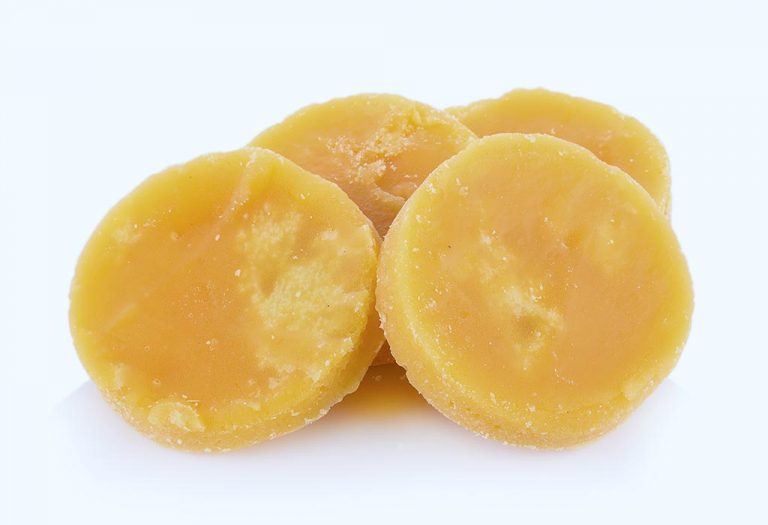

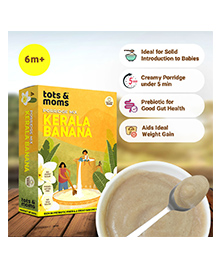


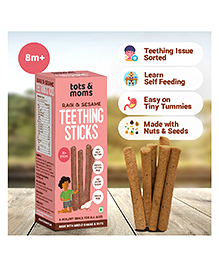

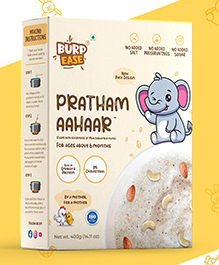




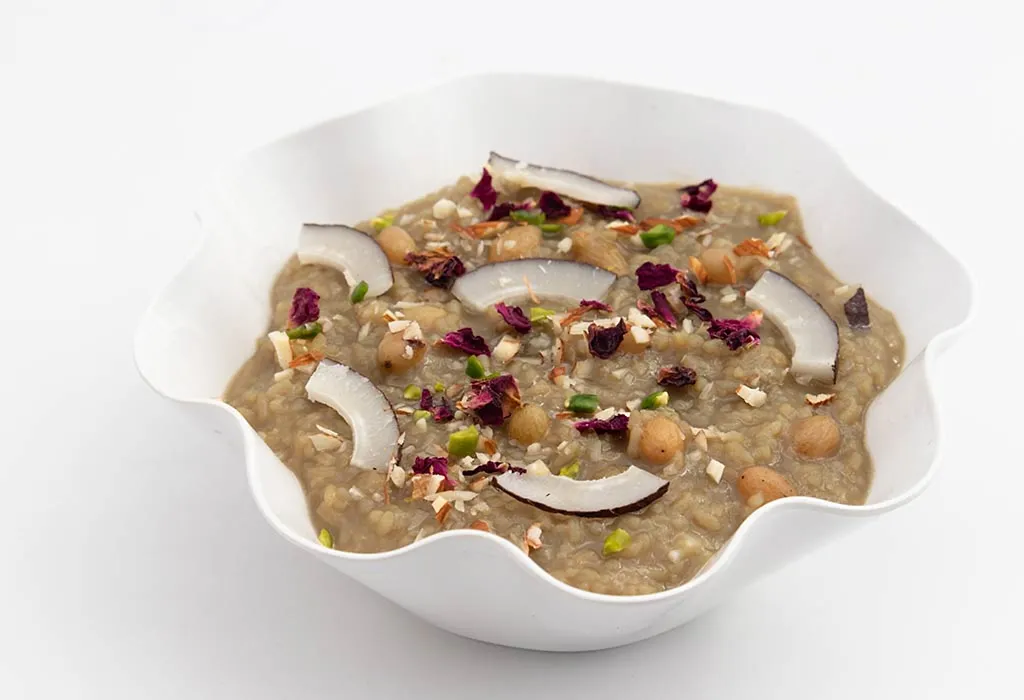
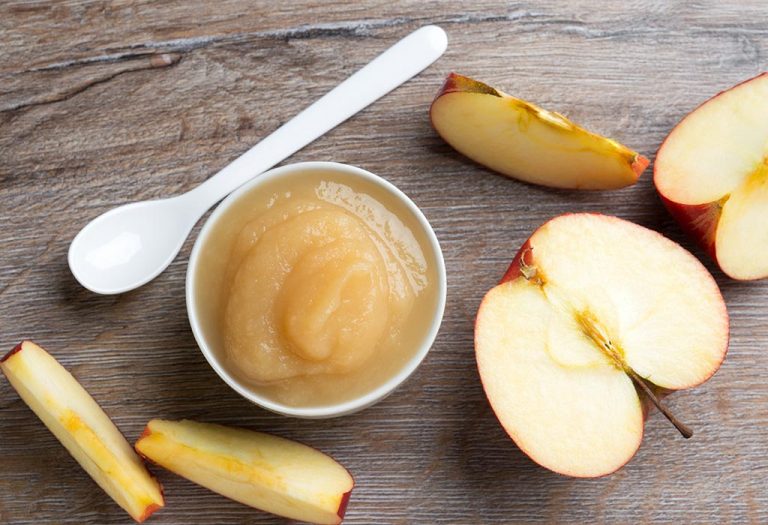
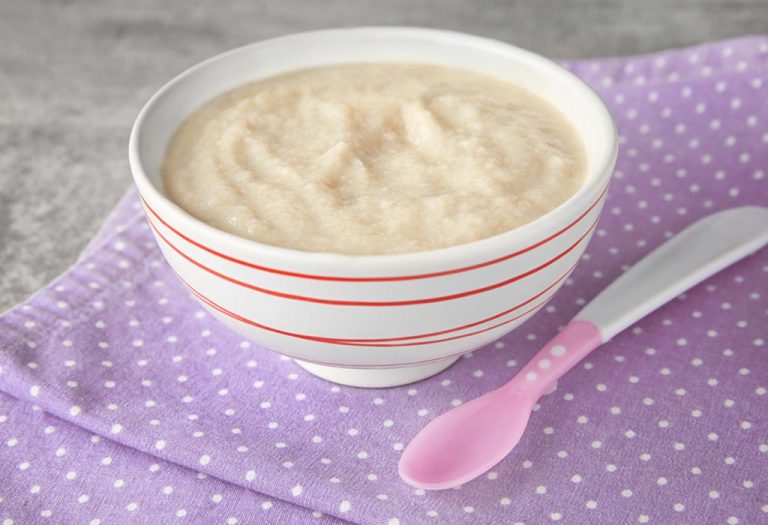
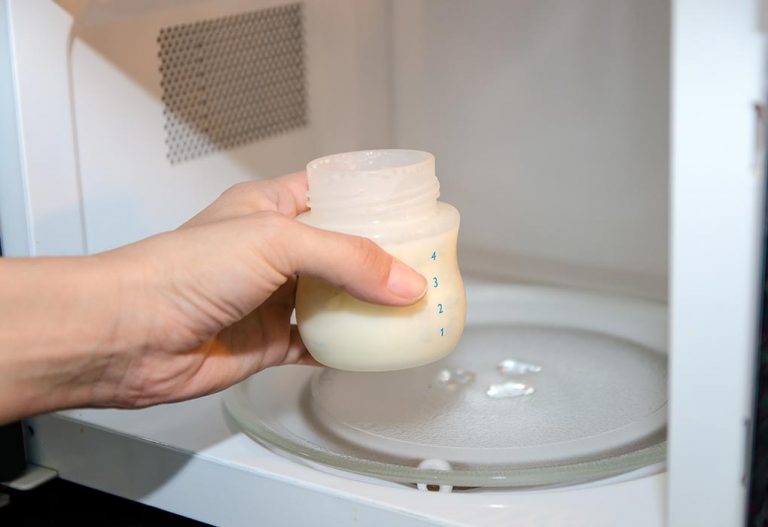
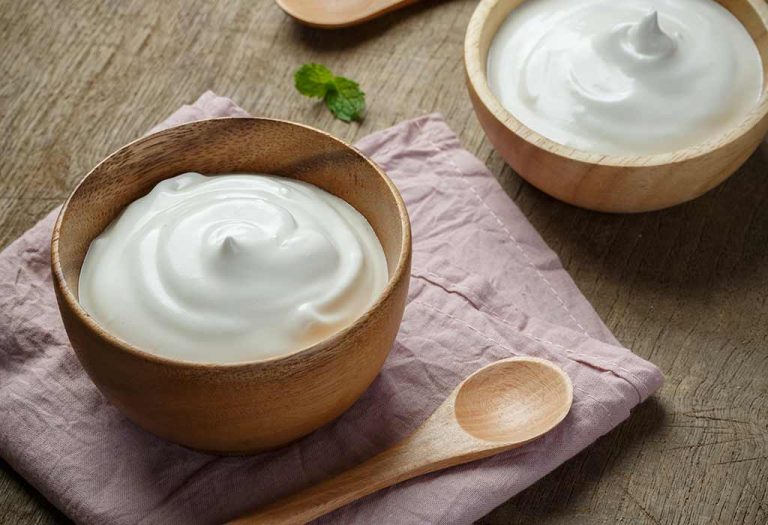



.svg)


















